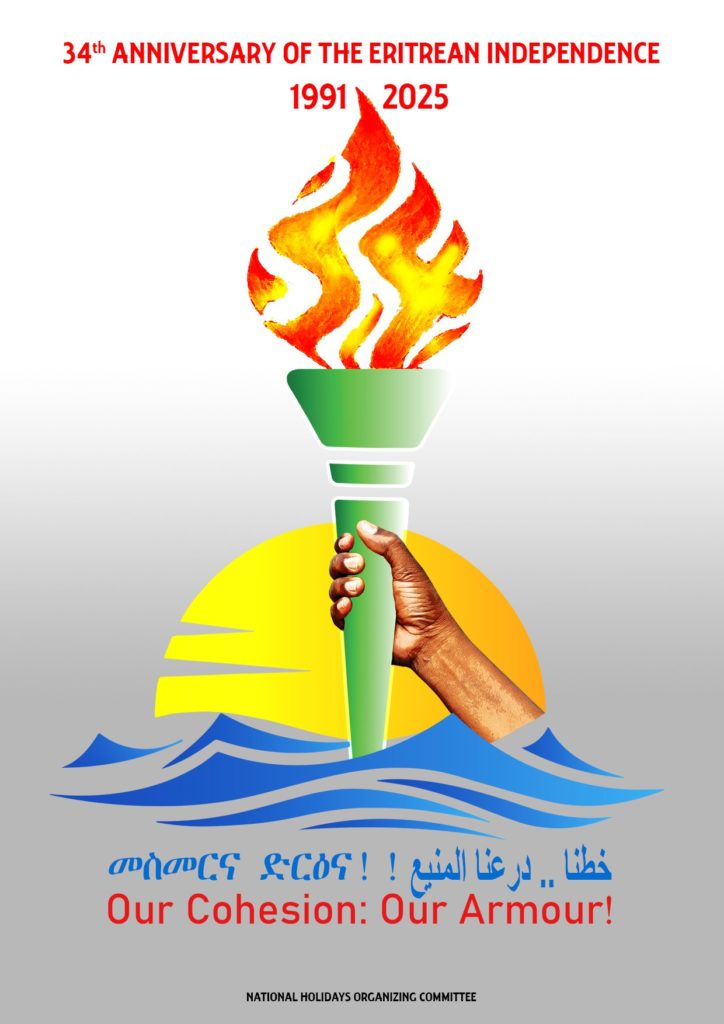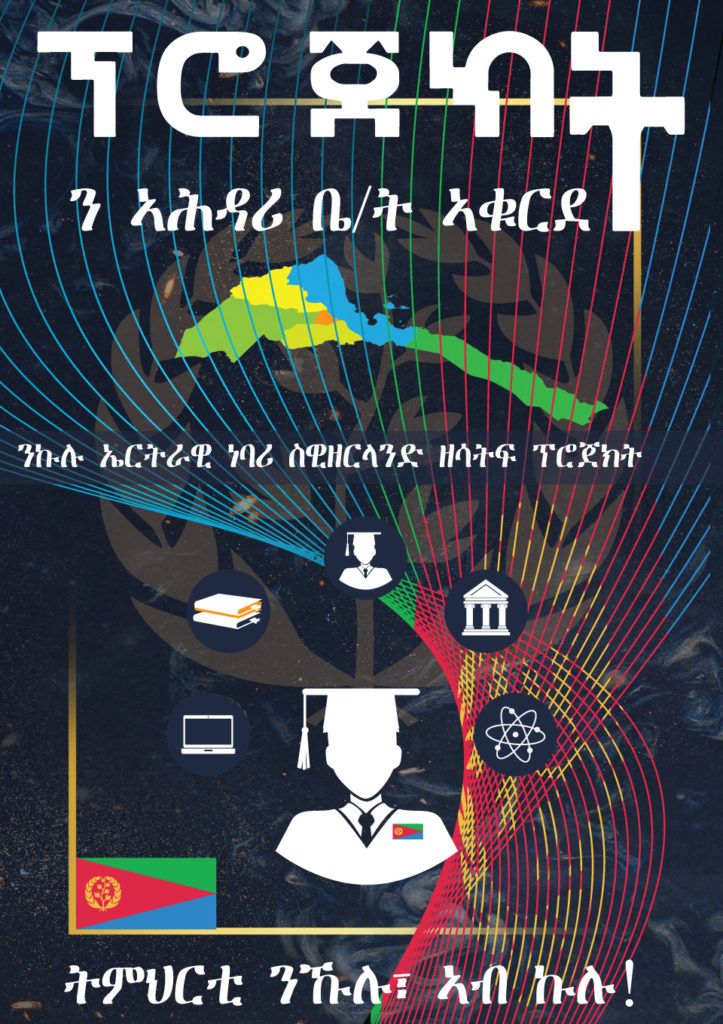How Eritrea is Advancing Environmental Sustainability: Celebrating World Environment Day 2025
By Bana Negusse
This week, countries around the globe will mark World Environment Day (WED), led by the United Nations Environment Programme (UNEP), the UN’s leading authority on environmental issues. Celebrated annually on 5 June since 1973, WED was established at the 1972 Stockholm Conference on the Human Environment – a seminal event that firmly placed sustainable development on the international agenda.
Over the decades, WED has grown into the world’s largest platform for environmental outreach, spotlighting urgent ecological challenges such as air and plastic pollution, illegal wildlife trade, sea-level rise, sustainable consumption, and food security. Recognized and commemorated by millions globally, WED not only raises awareness but also helps shape positive shifts in consumer behaviour and influences both national and international environmental policies.
This year, World Environment Day (WED) focuses on ending plastic pollution globally. According to credible estimates, the world produces more than 430 million tons of plastic annually, two-thirds of which are short-lived products that soon become waste, filling the ocean and, often, working their way into the human food chain. Ridding the planet of plastic pollution is an essential contribution to achieving the United Nations Sustainable Development Goals, including those on climate action, sustainable production and consumption, protection of seas and oceans and repairing ecosystems and retaining biodiversity.
This article highlights Eritrea’s proactive efforts to address environmental challenges, including plastic pollution, while advancing broader sustainability, conservation, and climate resilience objectives.
Eritrea’s environmental vision: a commitment rooted in principle
In Eritrea, concern and regard for the natural environment run deep and the national commitment to establishing a safe, clean, healthy, and sustainable environment are longstanding. Eritrea’s National Charter, adopted in 1994 in the historic city of Nakfa, states that, “We are committed to economic growth, but in conjunction with social justice and the protection of the natural environment.” The Charter also declares that one of the country’s objectives is to gradually, “[B]uild a strong national economy, based on appropriate agricultural, industrial, commercial and other services, which satisfies the needs of our people, develops our own resources, [and] enables responsible utilization of the natural environment and resources.”
The country’s commitment is also powerfully reflected in the fact that it has signed or is party to numerous environment-, climate change-, and biodiversity-related international agreements and instruments, including, among others, the: United Nations Framework Convention on Climate Change; Convention on Biological Diversity; United Nations Convention to Combat Desertification in those Countries Experiencing Serious Drought and/ or Desertification, Particularly in Africa; World Heritage Convention; Stockholm Convention on Persistent Organic Pollutants; Cartagena Protocol on Biosafety to the Convention on Biological Diversity; Kyoto Protocol to the United Nations Framework Convention on Climate Change; Paris Agreement; Doha Amendment to the Kyoto Protocol; Nagoya Protocol on Access to Genetic Resources and the Fair and Equitable Sharing of Benefits Arising from their Utilization to the Convention on Biological Diversity, and Agreement on Port State Measures.
In addition to the above, a range of protective and restorative environmental activities, along with climate change mitigation and adaptation actions, continue to be conducted nationwide. (It is worth noting here that many of Eritrea’s initiatives and actions are actually decades old, predating the country’s independence and originally being promoted by the Eritrean People’s Liberation Front during the struggle for freedom.)
For instance, clean, renewable energy continues to be prioritized, while tangible steps are being taken to improve energy efficiency and promote clean alternatives in transport, manufacturing, and household consumption.
One unique and relatively successful national intervention has been the introduction of improved traditional stoves, locally known as “Adhanet”, which are energy efficient (decreasing consumption by an estimated 50 percent), minimize deforestation, and reduce safety and health hazards. Designed by the Ministry of Energy and Mines and distributed by the Ministry of Agriculture, more than 170,000 of these units have been installed in households and communities nationwide since 1998.
Additionally, Eritrea is currently in the early stages of developing a 30 MW solar photovoltaic (PV) plant in the town of Dekemhare. The project, which will be the country’s first large-scale solar plant, includes a 15 MW/30 MWh battery energy storage system, a 33/66 kilovolt (kV) substation, and a 66 kV transmission line connected to the existing transmission line between East Asmara and Dekemhare, located about 1 km from the project site.
Preserving ecosystems and biodiversity
Notably, through the enactment of government directives, large enclosures have been established, and several priority areas for protection have been delineated and mapped. (The latter include large regions of Semienawi and Debubawi Keih Bahri, Buri-Irori-Hawakil, the Berasole estuary, and the Gash-Setit Elephant Sanctuary.) Furthermore, Eritrea has banned the hunting and trapping of wild animals, while the cutting of live trees is legally prohibited and actively enforced. Afforestation and reforestation programs, which involve the active participation of government ministries and institutions, local communities, student and youth groups, and other entities, have been conducted regularly in all regions of the country.
As a key component of these initiatives, more than 45 million tree seedlings of different types have been planted since 2006, with a high survival rate. Alongside these strong efforts, thousands of kilometers of terraces have been constructed and reinforced, while numerous water diversion schemes have been developed in all six of the country’s administrative regions, particularly within rural areas.
Together, these initiatives have significantly contributed to combating land degradation, tangibly restored ecologically damaged forests and other areas, and optimized land use within extremely challenging terrain. They have also played a tremendously positive role in reducing soil erosion and increasing soil quality, while also tangibly helping to promote water conservation and combat the widespread destruction associated with flooding.
Leading the way on plastic bag elimination
One of Eritrea’s most pioneering actions was its early ban on plastic bags. In early 2002, plastic bags were banned from Asmara, following bans in other large urban areas, including Keren and Dekemhare. Then, in 2004, the government enacted a national legal notice to ban plastic bags throughout the country. The ban, which came into effect nationally in January 2005, outlawed the import, production, sale, or distribution of plastic bags, and was characterized by stiff fines (mainly directed at producers and distributors). The step to ban plastic bags made Eritrea one of the first countries in all of Africa, and one of the few anywhere in the world, to do so.
Beyond the enactment of a legal notice, various ministries and organizations have worked together to educate the public about the importance of protecting the environment and the significant damage caused by plastic bags. Early on, community administrators discussed how goats, cows, and sheep were eating bags, causing many to die, and thus helped increase support for the move among numerous rural communities and farmers. As well, national radio, television, and newspapers promote positive environmental habits, while young Eritreans continue to be taught about the need for sustainable consumption and recycling.
Although plastic bags were once highly popular and ubiquitous throughout the country, Eritreans have generally responded positively, while local authorities conduct occasional checks of stores and other businesses to ensure that they are not using plastic bags and to significantly eliminate and reduce breaches of the law. Today, Eritreans use cloth, nylon, or straw bags, which tend to be locally manufactured (thus supporting the local economy), and many of the problems associated with plastic bags – such as the blockage of drains and water pipes, spread of disease, deaths to farm animals and marine wildlife, pollution of the soil and general environment, and contribution to a bleak and disheartening visual landscape – have been dramatically reduced.
Conclusion
As the world rallies around World Environment Day 2025, Eritrea stands as a compelling example of how strong policy, community engagement, and local innovation can drive meaningful environmental progress. While significant challenges remain, the country looks ahead with determination, purpose, and a clear commitment to a more sustainable future.


